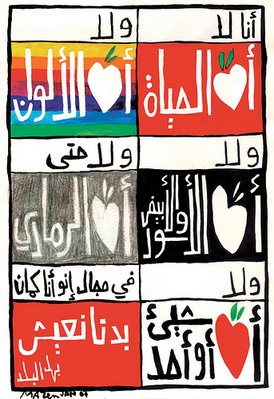Prostitution in Syria - Sami Moubayed
Prostitution in Syria
Sami Moubayed
Washington Post
Prostitution was legalized and professionalized under the Ottoman Empire. Back then there was fear in Damascus that the wandering soldiers would attack or rape young Syrians. That is why affordable prostitution centers were created for them in the Syrian capital, as a form of maintaining public security. This system was maintained when the Ottoman Empire collapsed in 1918. The destruction of World War I, along with the poverty imposed on the Syrians, however, made many young women turn to prostitution for a living and the years 1914-1918 are considered the worst in the past 100-years of Syrian history.
When the French came to Syria in 1920, they professionalized prostitution in major urban cities of Syria. Prostitution centers were registered in government records, and guarded by armed men from the colonial troops of France, mostly, from the Senegal. Any woman found to be engaged in illegal sexual conduct for more than three times would be arrested and sent to the prostitution center. There she would become an “official” employee. She would pay taxes to the central government, and receive check-ups twice a week at the Ministry of Health.
As early as 1922, there were 271 prostitutes registered officially in Syria. The Syrians knew that frequenting these places was wrong, both morally and socially, and during the early years of the Mandate, the regular customers were often foreigners and Frenchmen. By the 1930s, the practice had become common to Syrian men as well.
In 1953, the first serious attempt at combating the trend was undertaken by President Adib al-Shishakli, who passed strict laws to prevent prostitutes from entering Syria. In 1957, a group of religious men approached President Shukri al-Quwatli and Nazim al-Qudsi, the speaker of Parliament, asking them to close down cabarets, nightclubs, and all illegal venues for prostitutes. Both men were religious but the Syrian President replied: “If I create heaven for you on earth, what do we leave for the God Almighty?” The government’s job was not to interfere in the daily life of Syrian citizens, he added, but rather, try to keep a watchful eye on it. The government’s job, he added, was to collect taxes and in turn, use them to provide a safer and better living for average Syrians. Punishment for immoral action—and reward for piousness—would be given by God in Heaven.
As a result, the trend continued to flourish in Syria and was outlawed—among other things—by President Gamal Abdul-Nasser of Egypt in 1959 during the years of the United Arab Republic (UAR). The law outlawing prostitution was decree # 10.
This is part of a longer article.
Labels: Social issues











